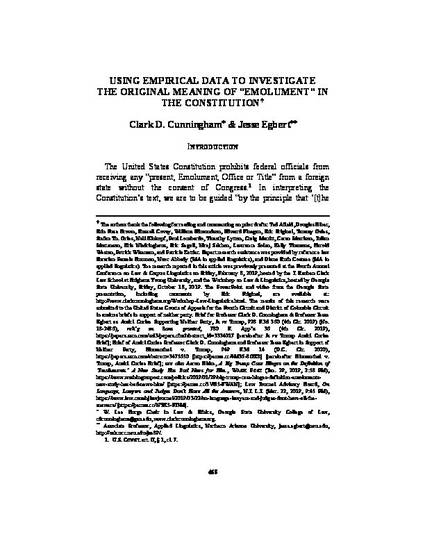
The United States Constitution prohibits federal officials from receiving any “present, Emolument, Office or Title” from a foreign state without the consent of Congress. In interpreting the Constitution’s text, we are to be guided “by the principle that ‘[t]he Constitution was written to be understood by the voters; its words and phrases were used in their normal and ordinary as distinguished from technical meaning.’" However, in trying to determine the “normal” meaning of “emolument” in the Founding Era we are confronted with a term that might as well be a foreign word from an unknown language. The word emolument has virtually vanished from contemporary American English.
A search for either “emolument” or “emoluments” in the Corpus of Historical American English (COHA), a digital database containing more than 400 million words of text from the 1810s–2000s, produced only four occurrences since 1990.
In this article, we investigate the mysterious meaning of emolument by using computer-assisted search and analysis of a massive database of texts from the time of the Constitution and find strong patterns of usage that reveal how the word was used at the time the Constitution was drafted and ratified.
Available at: http://works.bepress.com/clark_cunningham/110/
